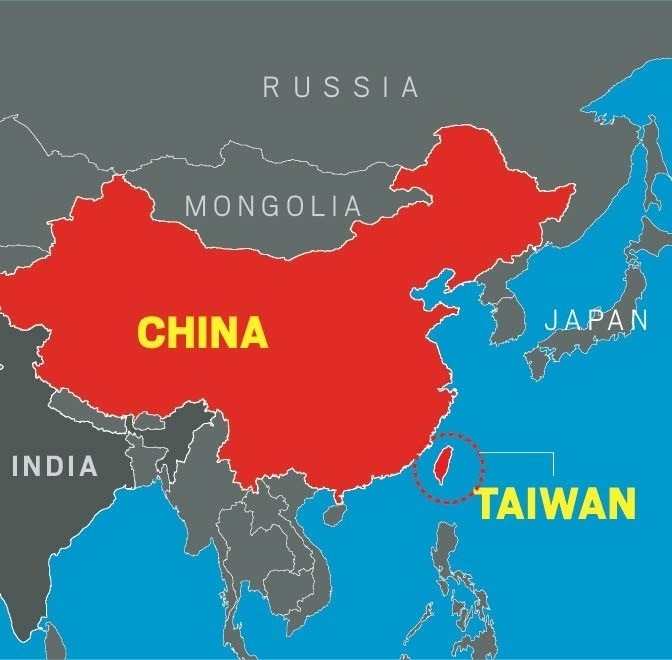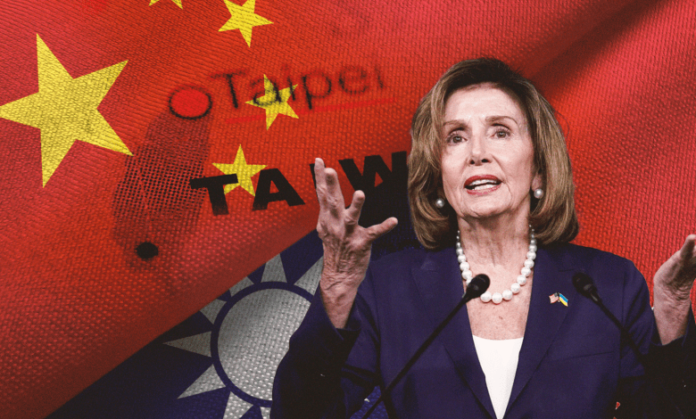On 2 August 2022, American Speaker of the House, Nancy Pelosi, landed in Taiwan. The Speaker of the House is the highest official in the American legislature and is the closest approximation to the Prime Minister within the House of Representatives. This visit marks the highest level visit by an American official since 1997 when Speaker Newt Gingrich visited Taiwan.
Pelosi’s visit was condemned by the People’s Republic of China (PRC). Following the visit, China announced that it would conduct military drills and missile tests around Taiwan. These military exercises are an unprecedented display of force in the region and experts are concerned that the visit and the reaction mark a deterioration in the relations between two of the most powerful countries in the world.
Isn’t Taiwan an independent country?
Since its de facto separation from China, Taiwan has had an ambiguous legal status. It is not officially recognized by most countries across the world, including the United States, though most countries have certain arrangements with the government of Taiwan. Since the Chinese Revolution, Taiwan has held a strategic position for Western Powers against China. America has been ambiguous regarding its position on the matter of Taiwan. It neither overtly supports the PRC’s One-China policy nor does it support Taiwanese independence.
Historically, the island of Formosa (Taiwan) was the envy of many colonial powers, for its strategic place off the coast of China. Chinese empires had to fight off colonial invaders, like the Dutch the British and the French from the island for centuries. In 1894, Japan invaded the island. Japanese rule lasted until World War II when Japan had to cede control of Taiwan to China, who fought on the side of the victorious Allied forces.
This coincided with the Chinese Civil War, which lasted from 1927 to 1949. The war was fought between the Nationalists, who succeeded the Qing dynasty, and the insurrectionary Communists. The Nationalists were in power when control of Taiwan shifted to China. The Nationalists were defeated by the Communists in the Civil War. In 1949, the Chinese Communist Party declared itself as the rightful ruler of China and consolidated its rule over all of mainland China by 1951. The Nationalist Government fled to Taiwan and established a new capital in Taipei, claiming to be the rightful ruler of China. They carried the name Republic of China (ROC) and represented the Chinese country as a whole internationally.
Two Chinas
In 1954, the US signed a defence treaty promising to protect ROC (Taiwan) if the PRC were to claim the island. This discouraged the PRC from consolidating Taiwan into the PRC. America maintained a strong military presence in East Asia, with wars in Korea, Vietnam, Cambodia and Laos. If the PRC made claims on Taiwan, it would have ignited another conflict, which the PRC was not ready for. In 1964, the PRC began testing and developing nuclear weapons, which may have been the main reason it was able to keep the United States from invading.
America officially recognized the PRC as the sole legal government in 1979 after the PRC and the Soviet Union split. It ended the official recognition of the government of Taiwan. The American position has since been that it recognizes the Chinese position that there is one China and that Taiwan is part of China. However, the position has been left deliberately vague. The US does not accept or recognize that there is one China, as defined by the Chinese government, nor that Taiwan is part of China, but there is enough room for interpretation that it does. Neither PRC nor USA has tried to clarify, as it satisfied the interests of both states.

What is the situation right now?
Since the 1990s, China’s position in the world has grown. While in the 1980s, it seemed like the country was falling apart at the seams, in the 1990s and 2000s, China made great advancements in the Manufacturing, Finance and Tech sectors. These developments have levelled China’s position concerning western countries. The 2008 financial crisis saw a huge shift in China’s financial position. Western powers have feared that many of its last enclaves around China are quickly disappearing. China has been slowly integrating Hong Kong into the broader Chinese political system. China has also developed its economic influence across the world. Western powers fear that China will substantiate its claim on Taiwan.
Convenient Murkiness
Taiwan’s status as a sovereign nation is ambiguous. Western Powers, the PRC and the Taiwan government have allowed this ambiguity to persist for convenience. Piercing through the vagueness can create conditions for conflict. Pelosi’s visit is an example of this. Overt support for Taiwanese independence has not been supported by any major power. China’s claim on Taiwan is still nominal, and Taiwan has retained good trade relations with China. Polls among the Taiwanese people show that most people in Taiwan support the current status quo.
The Chinese National identity is very intertwined with its specific experience of colonialism. Western powers invaded the country, spread Opium, subjugated it economically, and promoted social and political strife for over a century. Since the Chinese Revolution, and especially now, the Chinese see Taiwan as part of their country and would see western powers protecting it as a threat to the Chinese nation. Most people in China read the ambiguity over America’s stance on Taiwan as an acceptance of China’s One-China policy.
Western powers have conflated issues of China’s human rights record and its history of claiming Tibet and Hong Kong with the issue of Taiwan. These are important but different issues. In the end, no party wants to clear up the ambiguity and it has worked well for them.
Tensions between China and the US are a global concern. Like with Russia, American influence around China is being seen as a threat to the very existence of China and can be an incentive for China to act rashly. China is a nuclear power, which makes the prospect of war a threat to the Earth. Even if the conflict does not escalate into a nuclear conflict, both China and US are key players in the global economy, and antagonism between these two countries can easily have consequences on many aspects of life for everyone.



























